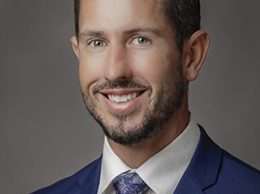Opinion: Navigating the ‘gotchas’ in California employment law
By Jonathan Fraser Light
Employers may have noticed that California employment law is incredibly burdensome, incredibly detailed, and filled with “gotchas.” The actual statutes are only part of the problem; the courts sometimes interpret those laws in ways that make little sense. Here are a few of those “gotchas” that may leave you scratching your head or wondering, “When did that become a law?”
First off, if an employer’s mechanics, technicians or construction workers are required to provide their own basic hand tools, the employer must pay those workers twice minimum wage; otherwise, the employer must pay for the tools.

Next, most employers know that if an employee misses a meal or rest break, or if the meal or break is cut short or is late, the employer owes an hour of “premium pay” (actually, it’s a penalty, but that’s just semantics). What’s less known is that if the employer provides bonuses to an employee based on production or other performance metrics, the premium pay must be grossed up in the same manner that overtime rates are increased by the value of such bonuses when added to the regular rate of pay for that workweek.
Salespeople who work primarily (i.e., more than half the time) at a fixed location (home or office) must be paid overtime not only on their base pay, but also on their commissions or bonuses, except in very limited circumstances.
Here’s a tricky one. Many employers favor rounding the time for hourly workers because it makes accounting easier and prevents employees from working the system by clocking in a little early and leaving a little late to create additional income. But, evolving case law suggests that rounding favoring the employer may violate the law.
In a significant decision earlier this year, the court ruled that employers may never round for meal breaks. And it’s not just the meal itself (i.e., rounding 29 minutes to 30 minutes). Assume the employee clocked in at 7:59 am and took a meal at 1 p.m., and the employer traditionally rounds 7:59 a.m. to 8 a.m. Now, based on this no-rounding rule, the employee would have begun the meal at 5 hours and 1 minute of actual work time, which is a violation of the law — meals must begin by the end of the 5th hour. That extra minute triggers the one-hour meal premium.
Employees who work from home because they have been told to — thank you, COVID — are entitled to reimbursement for “reasonable business expenses” incurred on behalf of the employer. Use of personal cell phones and computers are easy ones, but what about home internet usage and electricity? Or wear and tear on a home desk, chairs, etc.? I’ve seen claims for all of these, so when an employer offers, for example, $50 for monthly expense reimbursement, it would be wise to list exactly what that money covers.
I still run into the occasional employer who assumes that if they pay a salaried employee at least twice minimum wage as required to be exempt from overtime, and the employee generally has duties that seem more supervisory or higher level, then the employer is off the hook for overtime. Not true. Under California law, which differs significantly from federal law, employees must spend more than half their time performing the higher level duties to qualify as exempt. Employers should audit their mid-level salaried people to determine if they actually meet this test or risk state penalties if the criteria are not met.
Notwithstanding all these gotchas — and we can’t always blame state law — California and its fifth-largest economy in the world is still a great place to run a business. A relatively educated workforce, more available workers (despite current shortages), typically safer and healthier work environments (despite all the wildfires), and diversity of business opportunities all help.
• Jonathan Fraser Light is the managing attorney at LightGabler and may be reached at [email protected].











